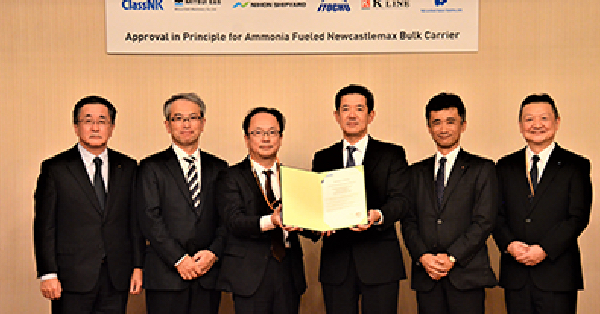
Ammonia is expected to be used as a ship fuel for decarbonization since it does not emit CO2 when combusted. Meanwhile, adequate safety measures are imperative as it has been pointed out that ammonia is toxic to humans and corrosive to materials. ClassNK has been involved in projects aiming for zero-emission ships using ammonia fuel in terms of safety assessment, and has issued its “Guidelines for Ships Using Alternative Fuels” as a necessary standard to minimize the risks related to ammonia-fueled ships for the ships, crews, and environment by stipulating requirements for installation, controls, and safety devices.
ClassNK carried out the design review of the vessel developed by ITOCHU, Nihon Shipyard, Mitsui E&S, “K” LINE, and NS United Kaiun in line with Part C of its guidelines. In addition, the risk assessment through HAZID (Hazard Identification Study) was verified and issued the AiP on verifying that it complies with the prescribed requirements.
For the five companies’ aim to deliver the vessel and start its social implementation in 2026, ClassNK will continue to support as the certification body, and will strive to provide appropriate standards for ammonia-fueled ships through the expertise gained from the collaboration.








































